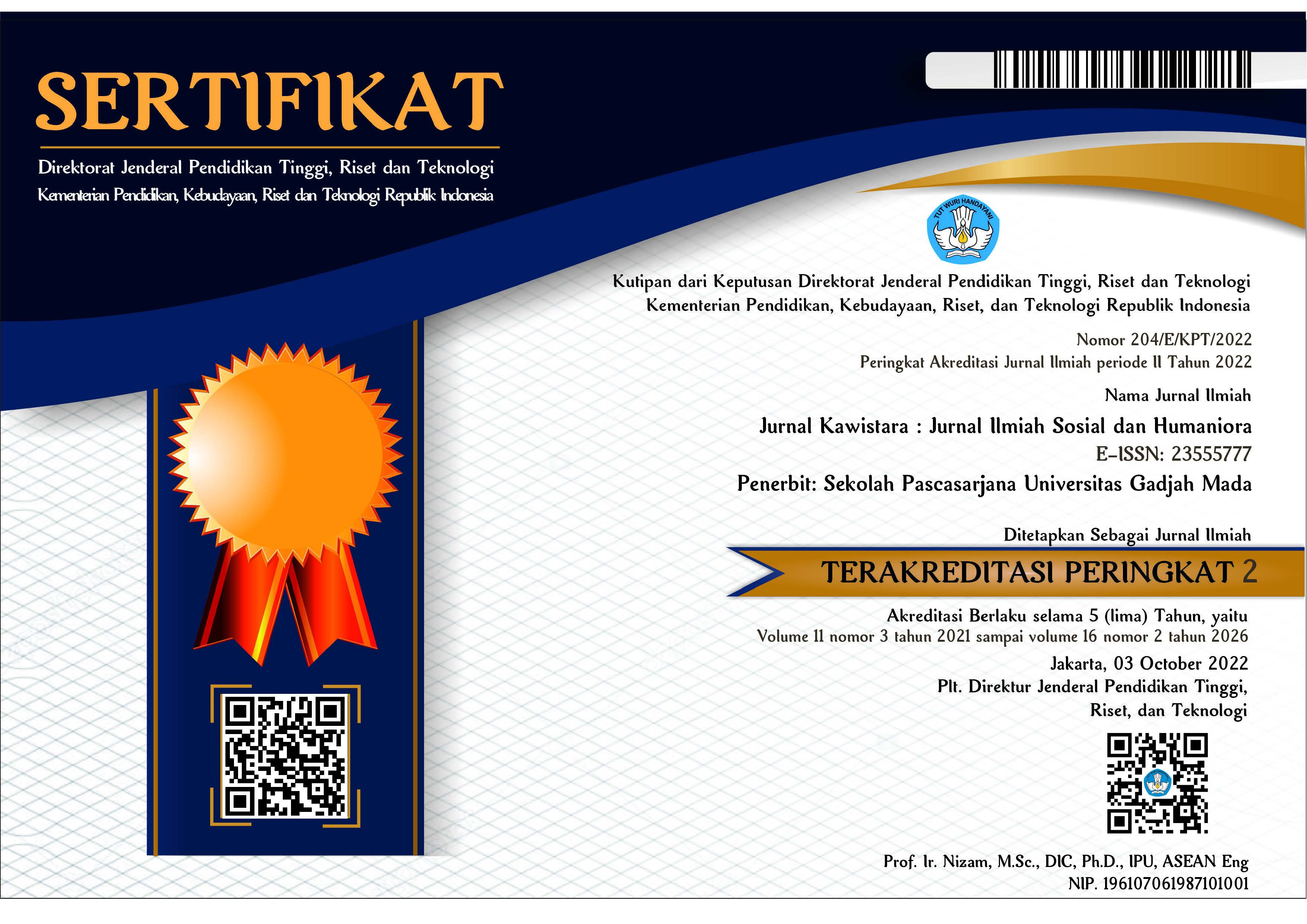Pendidikan Nonformal Dan Agribisnis Berkelanjutan Kajian Tentang Kontribusi Dana Desa Di Sleman
Roso Witjaksono(1), Sunarru Samsi Hariadi(2), Subejo -(3), Krishna Agung Santoso(4), Sri Peni Wastutiningsih(5), Ratih Ineke Wati(6), Alia Bihrajihant Raya(7), Rahima Kalily(8), Suyoto H S(9), Ani Dwi Wimatsari(10*)
(1) Universitas Gadjah Mada
(2) Universitas Gadjah Mada
(3) Universitas Gadjah Mada
(4) Universitas Gadjah Mada
(5) Universitas Gadjah Mada
(6) Universitas Gadjah Mada
(7) Universitas Gadjah Mada
(8) Balai Pengkajian teknologi Pertanian (BPTP) Yogyakarta
(9) Universitas Gadjah
(10) Universitas Gadjah Mada
(*) Corresponding Author
Abstract
When quality education is not always accessible for youth in rural areas, non-formal education has provided a key alternative for the character and career of youth in villages. This role of non-formal education has been enhanced recently by the distribution of government village funds. Non-formal education has had a key role in the development of youth in villages. This paper elaborates on the role of village funds (dana desa) and non-formal education in managing agribusiness supported by village youth in Sleman Regency, Yogyakarta. This paper is based on mixed research method that combined quantitative and qualitative methods of data collection. Samples were taken by proportionally in five villages in three sub-districts with a total sample of 60 village youth using simple random sampling. Quantitatively, the data is processed using multiple linear regression analysis, and qualitative data is analysed by simple descriptive. The results show that the dominant use of the fillage fund for infrastructure and lack of allocation for agriculture and youth empowerment activities. Nonetheless, the use of the village fund allocations to improve village roads has provided access and transportation of crops, and this can supports the sustainable management of organic zalacca agribusiness. Additionally, the improved management of the sustainable agribusiness made possible by the road construction. Ultimately, this paper points at the importance of youth attitude in the prospect of organic zalacca agribusiness.
Keywords: Non-formal education; Organic zallaca; Sustainable agribusiness managemen; Village funds (dana desa); Village youth.
Keywords
Full Text:
PDFReferences
- Ajzen, I. (2005) Attitude, Personality and Behavior. Second. New York: Open University Press. - Fishbein, M. and Ajzen, I. (2010). Predicting and Changing Behavior: The Reasoned Action Approach. New York: Psychology Press, Taylor and Francis Group.
- Guilford, J. P. (1942). Fundamental statistics in Psychology and Education. Third. New York: McGraw-Hill, Inc.
- Kemenkeu (2017). Buku Pintar Dana Desa. p. 113. Dikutip dari https://www. kemenkeu.go.id/media/6749/ buku-pintar-dana-desa.pdf.
- Mardikanto, T. (2009). Sistem Penyuluhan Pertanian. Pusat Pengembangan Agribisnis dan Perhutanan Sosial. Sebelas Maret University Press. Surakarta.
- Siswoyo, B. and Rahayu, W. (2016). Effect of Entrepreneurial Education and Economic Conditionof Parents towards an Entrepreneurship Attitud es through the Entre preneurship Interest, 18(6), pp. 105–110. doi: 10.9790/487X-180601105110.
- Umstot, D. D. (1987). Understanding Organizational Behaviour. Los Angeles-San Francisco: West Publishing Co.
-Undang-Undang Tahun Nomor 6 Tahun 2014 tentang Desa. (2014).
Article Metrics
Refbacks
- There are currently no refbacks.
Copyright (c) 2020 Roso Witjaksono, Sunarru Samsi Hariadi, Subejo -, Krishna Agung Santoso, Sri Peni Wastutiningsih, Ratih Ineke Wati, Alia Bihrajihant Raya, Rahima Kalily, Suyoto H S, Ani Dwi Wimatsari

This work is licensed under a Creative Commons Attribution-ShareAlike 4.0 International License.
Jurnal Kawistara is published by the Graduate School, Universitas Gadjah Mada.







